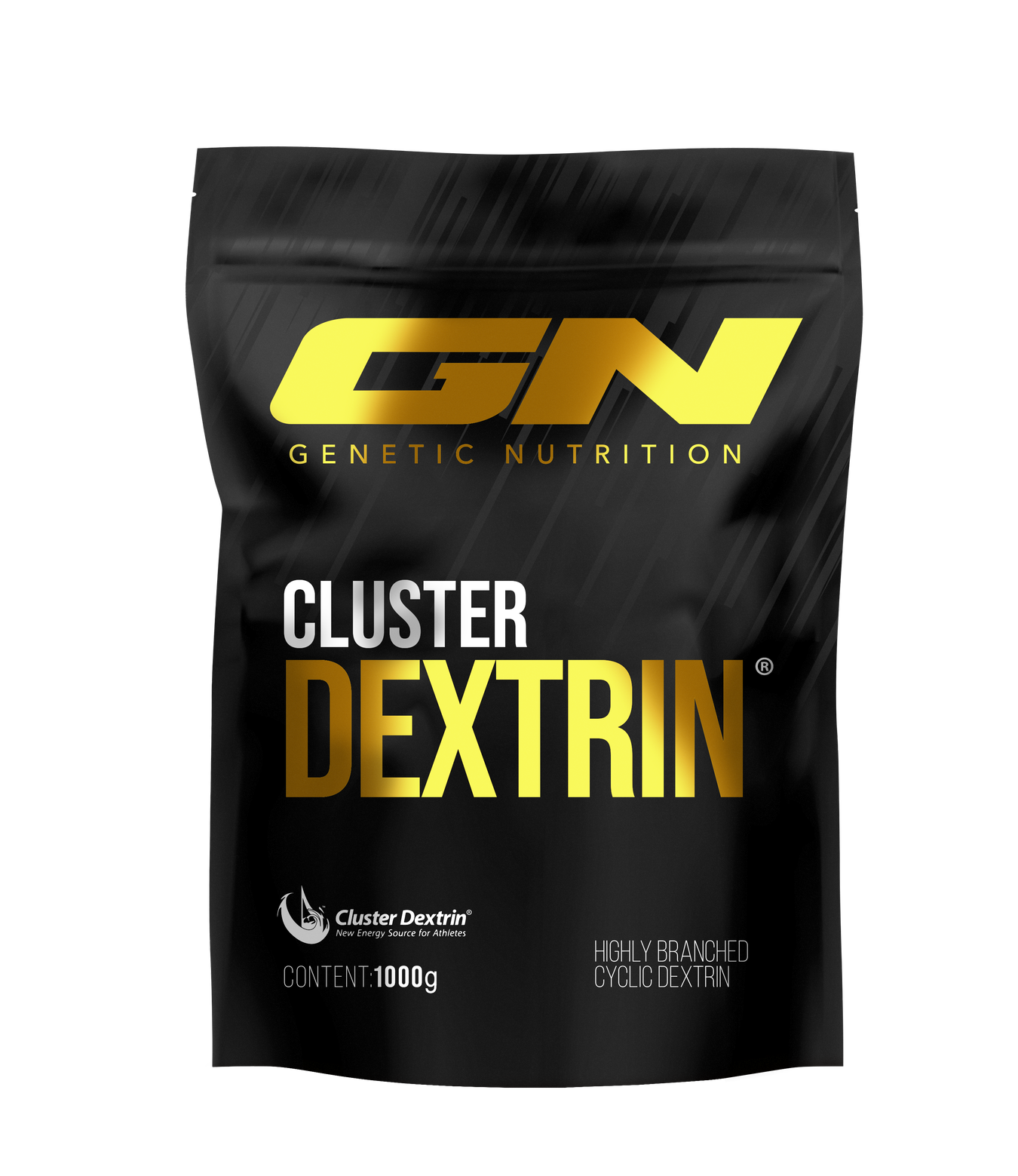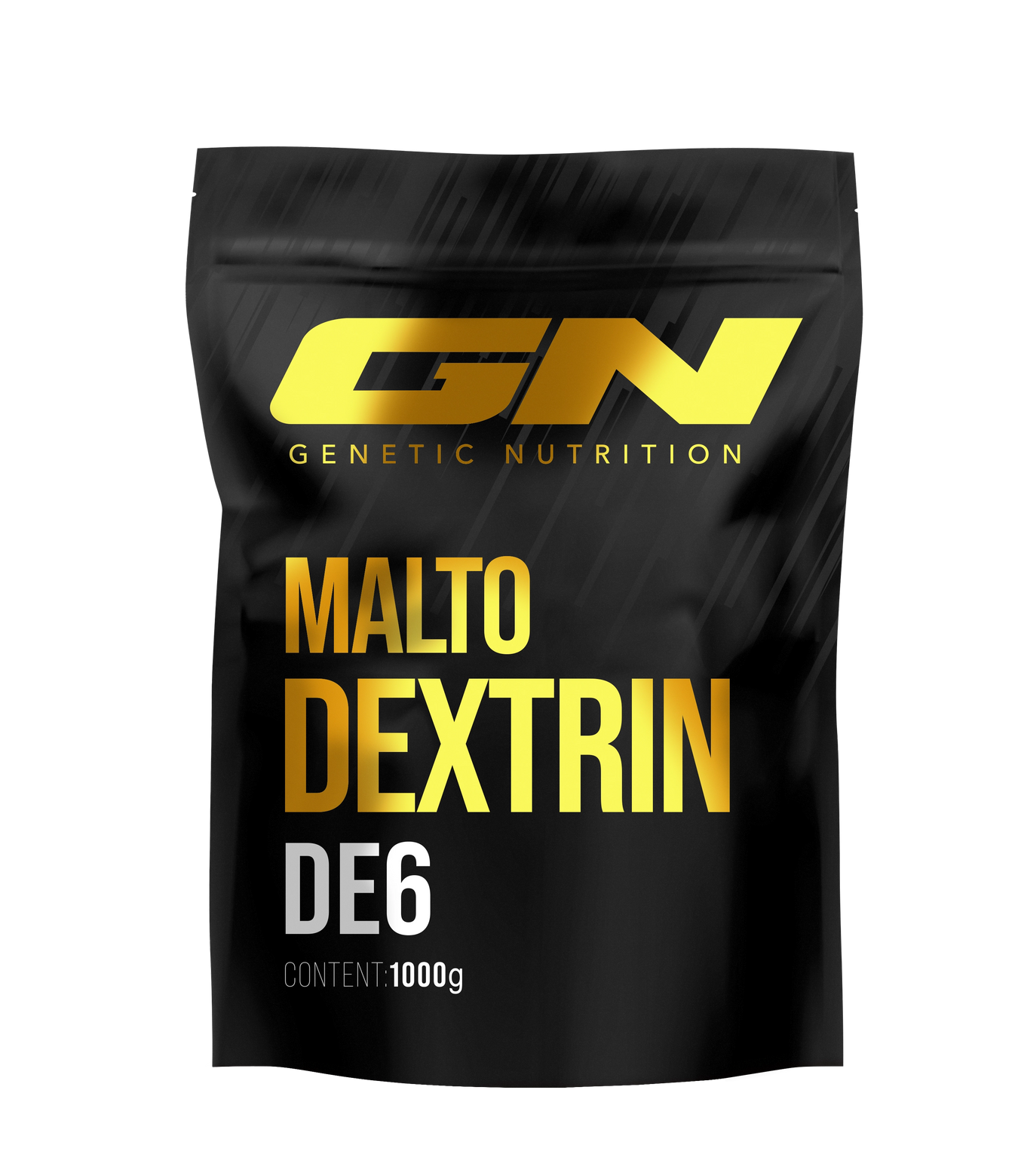Kohlenhydrate
Filter
-
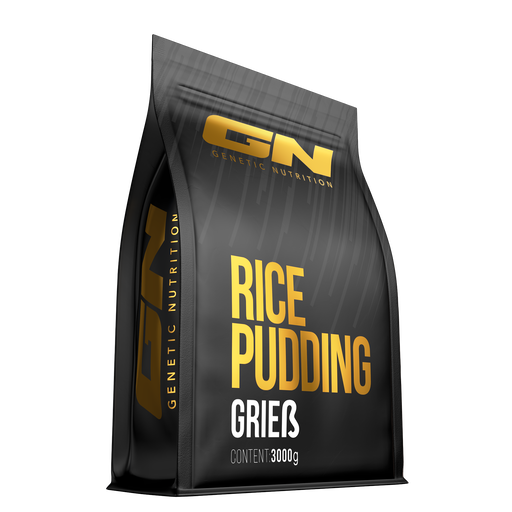 Jetzt 0% sparen
Jetzt % sparen
Original-Preis €29,90 - Original-Preis €29,90Original-Preis €29,90€29,90€29,90 - €29,90Aktueller Preis €29,90|/
Jetzt 0% sparen
Jetzt % sparen
Original-Preis €29,90 - Original-Preis €29,90Original-Preis €29,90€29,90€29,90 - €29,90Aktueller Preis €29,90|/Reis Grieß Pudding · 3000g
GN Laboratories37 reviewsFeinster Reispudding, im Handumdrehen zubereitet. Eine optimale, leckere und vor allem gesunde komplexe Kohlenhydrat-Quelle, damit du Energie hast,...
Vollständige Details anzeigenOriginal-Preis €29,90 - Original-Preis €29,90Original-Preis €29,90€29,90€29,90 - €29,90Aktueller Preis €29,90|/Jetzt 0% sparen Jetzt % sparen -
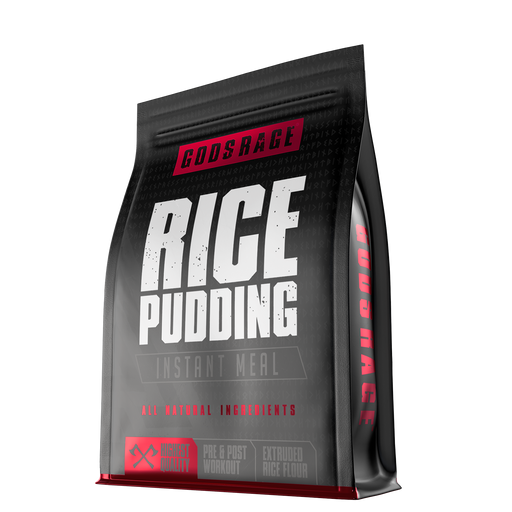 Jetzt 0% sparen
Jetzt % sparen
Original-Preis €29,90 - Original-Preis €29,90Original-Preis €29,90€29,90€29,90 - €29,90Aktueller Preis €29,90|/
Jetzt 0% sparen
Jetzt % sparen
Original-Preis €29,90 - Original-Preis €29,90Original-Preis €29,90€29,90€29,90 - €29,90Aktueller Preis €29,90|/Rice Pudding Instant Meal · 3000g
Gods Rage30 reviewsIm oftmals stressigen Alltag ist es nicht immer einfach, Zeit für das Kochen zu finden, an dieser Stelle kommt das Rice Pudding Instant Meal von Go...
Vollständige Details anzeigenOriginal-Preis €29,90 - Original-Preis €29,90Original-Preis €29,90€29,90€29,90 - €29,90Aktueller Preis €29,90|/Jetzt 0% sparen Jetzt % sparen -
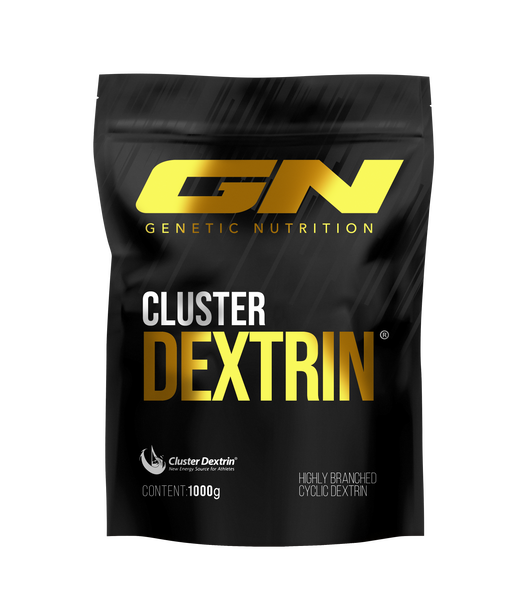 Jetzt 0% sparen
Jetzt % sparen
Original-Preis €29,90 - Original-Preis €29,90Original-Preis €29,90€29,90€29,90 - €29,90Aktueller Preis €29,90|/
Jetzt 0% sparen
Jetzt % sparen
Original-Preis €29,90 - Original-Preis €29,90Original-Preis €29,90€29,90€29,90 - €29,90Aktueller Preis €29,90|/Cluster Dextrin® · 1000g
GN Laboratories9 reviewsCluster Dextrin ist die wahrscheinlich fortschrittlichste Kohlenhydratform und überzeugt durch eine unfassbare Versorgung deines Körpers mit Energi...
Vollständige Details anzeigenOriginal-Preis €29,90 - Original-Preis €29,90Original-Preis €29,90€29,90€29,90 - €29,90Aktueller Preis €29,90|/Jetzt 0% sparen Jetzt % sparen -
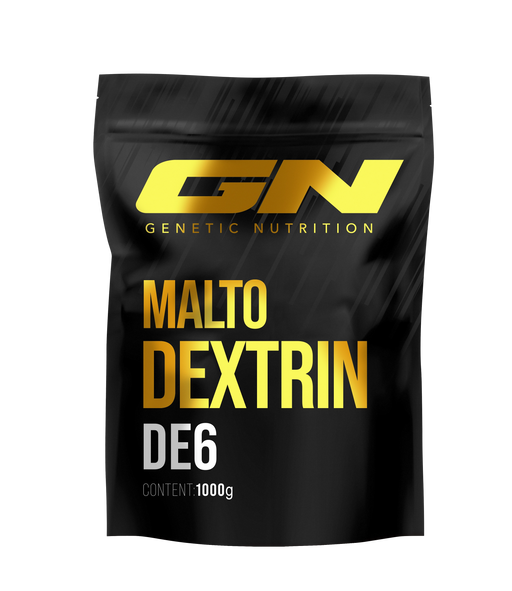 Jetzt 0% sparen
Jetzt % sparen
Original-Preis €14,90 - Original-Preis €14,90Original-Preis €14,90€14,90€14,90 - €14,90Aktueller Preis €14,90|/
Jetzt 0% sparen
Jetzt % sparen
Original-Preis €14,90 - Original-Preis €14,90Original-Preis €14,90€14,90€14,90 - €14,90Aktueller Preis €14,90|/Maltodextrin DE6
GN Laboratories14 reviewsKohlenhydrate während des Trainings zu sich zu nehmen, ist lange nichts Neues mehr. Maltodextrin gilt in dieser Hinsicht schon lange als ein klarer...
Vollständige Details anzeigenOriginal-Preis €14,90 - Original-Preis €14,90Original-Preis €14,90€14,90€14,90 - €14,90Aktueller Preis €14,90|/Jetzt 0% sparen Jetzt % sparen -
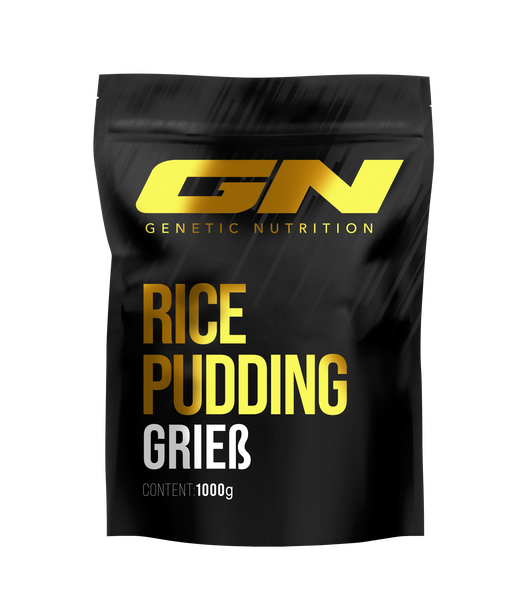 Jetzt 0% sparen
Jetzt % sparen
Original-Preis €12,90 - Original-Preis €12,90Original-Preis €12,90€12,90€12,90 - €12,90Aktueller Preis €12,90|/
Jetzt 0% sparen
Jetzt % sparen
Original-Preis €12,90 - Original-Preis €12,90Original-Preis €12,90€12,90€12,90 - €12,90Aktueller Preis €12,90|/Reis Grieß Pudding · 1000g
GN Laboratories29 reviewsFeinster Reispudding, im Handumdrehen zubereitet. Eine optimale, leckere und vor allem gesunde komplexe Kohlenhydrat-Quelle, damit du Energie hast,...
Vollständige Details anzeigenOriginal-Preis €12,90 - Original-Preis €12,90Original-Preis €12,90€12,90€12,90 - €12,90Aktueller Preis €12,90|/Jetzt 0% sparen Jetzt % sparen -
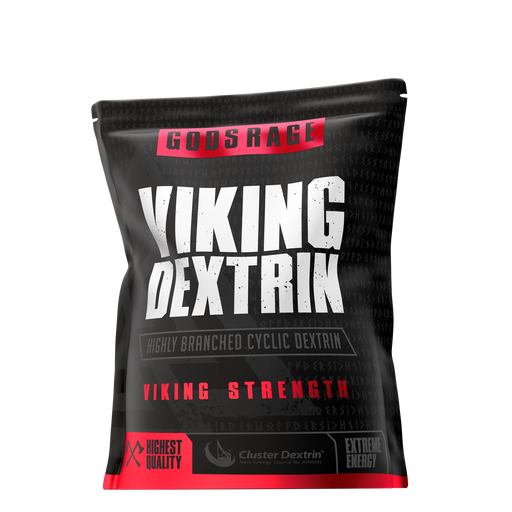 Jetzt 0% sparen
Jetzt % sparen
Original-Preis €29,90 - Original-Preis €29,90Original-Preis €29,90€29,90€29,90 - €29,90Aktueller Preis €29,90|/
Jetzt 0% sparen
Jetzt % sparen
Original-Preis €29,90 - Original-Preis €29,90Original-Preis €29,90€29,90€29,90 - €29,90Aktueller Preis €29,90|/Cluster Dextrin® - Viking · 1000g
Gods Rage24 reviewsWährend des Trainings benötigen deine Muskeln Energie, um ihre volle Leistungsfähigkeit zu entfalten und einen optimalen Wachstumsreiz zu setzen. M...
Vollständige Details anzeigenOriginal-Preis €29,90 - Original-Preis €29,90Original-Preis €29,90€29,90€29,90 - €29,90Aktueller Preis €29,90|/Jetzt 0% sparen Jetzt % sparen -
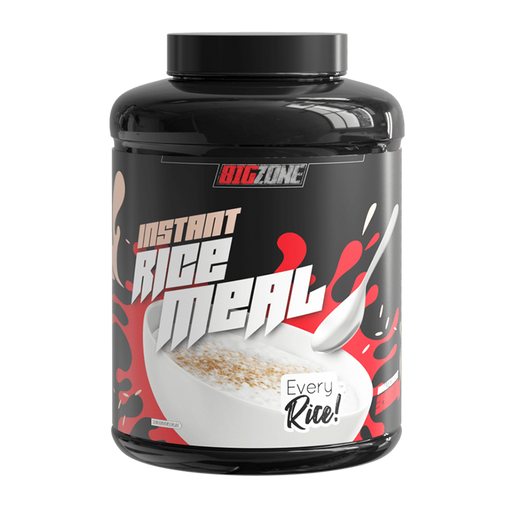 Jetzt 0% sparen
Jetzt % sparen
Original-Preis €29,90 - Original-Preis €29,90Original-Preis €29,90€29,90€29,90 - €29,90Aktueller Preis €29,90|/
Jetzt 0% sparen
Jetzt % sparen
Original-Preis €29,90 - Original-Preis €29,90Original-Preis €29,90€29,90€29,90 - €29,90Aktueller Preis €29,90|/Instant Rice Meal Every Rice · 3000g
Big Zone6 reviewsoptimale Konsisten schnelle Zubereitung perfekt kombinierbar mit dem Battle Whey 3000g Dose
Original-Preis €29,90 - Original-Preis €29,90Original-Preis €29,90€29,90€29,90 - €29,90Aktueller Preis €29,90|/Jetzt 0% sparen Jetzt % sparen -
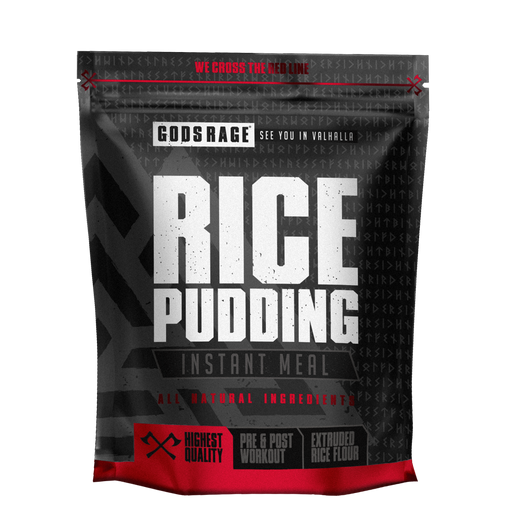 Jetzt 16% sparen
Jetzt % sparen
Original-Preis €12,90Original-Preis €12,90 - Original-Preis €12,90Original-Preis €12,90Aktueller Preis €10,90€10,90 - €10,90Aktueller Preis €10,90|/
Jetzt 16% sparen
Jetzt % sparen
Original-Preis €12,90Original-Preis €12,90 - Original-Preis €12,90Original-Preis €12,90Aktueller Preis €10,90€10,90 - €10,90Aktueller Preis €10,90|/Rice Pudding Instant Meal · 1000g
Gods Rage20 reviewsIm oftmals stressigen Alltag ist es nicht immer einfach, Zeit für das Kochen zu finden, an dieser Stelle kommt das Rice Pudding Instant Meal von Go...
Vollständige Details anzeigenOriginal-Preis €12,90Original-Preis €12,90 - Original-Preis €12,90Original-Preis €12,90Aktueller Preis €10,90€10,90 - €10,90Aktueller Preis €10,90|/Jetzt 16% sparen Jetzt % sparen -
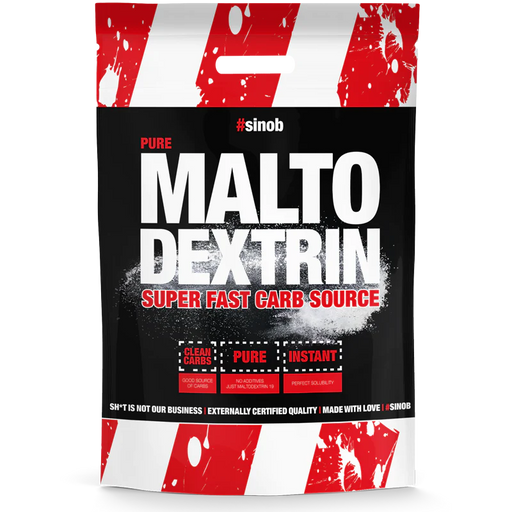 Jetzt 0% sparen
Jetzt % sparen
Original-Preis €22,90 - Original-Preis €22,90Original-Preis €22,90€22,90€22,90 - €22,90Aktueller Preis €22,90|/
Jetzt 0% sparen
Jetzt % sparen
Original-Preis €22,90 - Original-Preis €22,90Original-Preis €22,90€22,90€22,90 - €22,90Aktueller Preis €22,90|/Maltodextrin · 4000g
#sinob2 reviewsEssentiell für Muskelaufbau: Quality Carbs, besonders wichtig in der Aufbauphase, werden durch Maltodextrin effizient bereitgestellt. Leichte V...
Vollständige Details anzeigenOriginal-Preis €22,90 - Original-Preis €22,90Original-Preis €22,90€22,90€22,90 - €22,90Aktueller Preis €22,90|/Jetzt 0% sparen Jetzt % sparen -
 Jetzt 0% sparen
Jetzt % sparen
Original-Preis €49,90 - Original-Preis €49,90Original-Preis €49,90€49,90€49,90 - €49,90Aktueller Preis €49,90|/
Jetzt 0% sparen
Jetzt % sparen
Original-Preis €49,90 - Original-Preis €49,90Original-Preis €49,90€49,90€49,90 - €49,90Aktueller Preis €49,90|/Cyclo Dextrin (Cluster Dextrin®) · 2000g
Big Zone1 review100 % reines Cluster Dextrin® niedrige Osmolarität herausragende Löslichkeit geschmacksneutral, ohne Zusätze frei von Füll- und Zusatzstoffen...
Vollständige Details anzeigenOriginal-Preis €49,90 - Original-Preis €49,90Original-Preis €49,90€49,90€49,90 - €49,90Aktueller Preis €49,90|/Jetzt 0% sparen Jetzt % sparen -
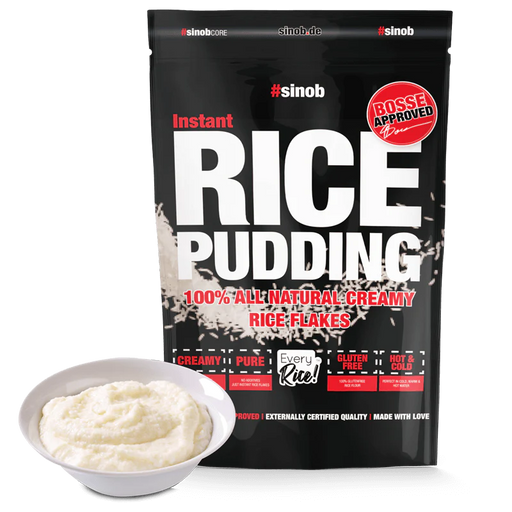 Jetzt 0% sparen
Jetzt % sparen
Original-Preis €29,90 - Original-Preis €29,90Original-Preis €29,90€29,90€29,90 - €29,90Aktueller Preis €29,90|/
Jetzt 0% sparen
Jetzt % sparen
Original-Preis €29,90 - Original-Preis €29,90Original-Preis €29,90€29,90€29,90 - €29,90Aktueller Preis €29,90|/Core Instant Rice Pudding · 3000g
#sinob4 reviewsSchnelle und einfache Zubereitung: Core Instant Reis Pudding ist in nur 2 Minuten fertig, ideal für beschäftigte Sportler und Fitnessbegeisterte....
Vollständige Details anzeigenOriginal-Preis €29,90 - Original-Preis €29,90Original-Preis €29,90€29,90€29,90 - €29,90Aktueller Preis €29,90|/Jetzt 0% sparen Jetzt % sparen -
 Jetzt 0% sparen
Jetzt % sparen
Original-Preis €64,90 - Original-Preis €64,90Original-Preis €64,90€64,90€64,90 - €64,90Aktueller Preis €64,90|/
Jetzt 0% sparen
Jetzt % sparen
Original-Preis €64,90 - Original-Preis €64,90Original-Preis €64,90€64,90€64,90 - €64,90Aktueller Preis €64,90|/Giant Mass Gainer · 6800g
Stacker 26 reviewsProtein- und kalorienreich Zunahme von 7 Kilogramm in einem Monat Enthält Wachsmais als Quelle für langsam absorbierte Kohlenhydrate Enthält ni...
Vollständige Details anzeigenOriginal-Preis €64,90 - Original-Preis €64,90Original-Preis €64,90€64,90€64,90 - €64,90Aktueller Preis €64,90|/Jetzt 0% sparen Jetzt % sparen -
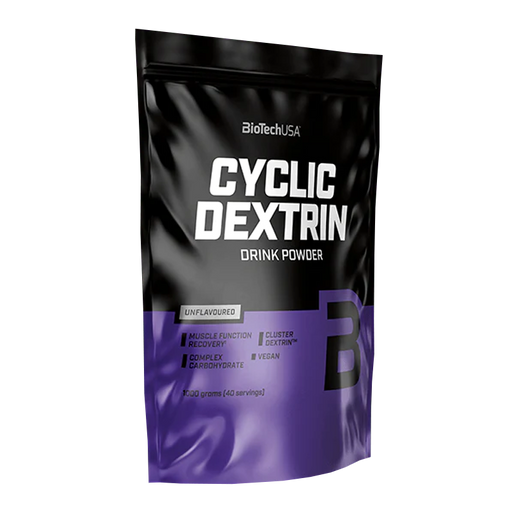 Jetzt 0% sparen
Jetzt % sparen
Original-Preis €25,90 - Original-Preis €25,90Original-Preis €25,90€25,90€25,90 - €25,90Aktueller Preis €25,90|/
Jetzt 0% sparen
Jetzt % sparen
Original-Preis €25,90 - Original-Preis €25,90Original-Preis €25,90€25,90€25,90 - €25,90Aktueller Preis €25,90|/Cyclic Dextrin · 1000g
Biotech USA3 reviewsEnthält komplexe Kohlenhydrate Mit niedrigem glykämischen Index Enthält ausschließlich Cluster Dextrin™ Geschmacksneutral
Original-Preis €25,90 - Original-Preis €25,90Original-Preis €25,90€25,90€25,90 - €25,90Aktueller Preis €25,90|/Jetzt 0% sparen Jetzt % sparen -
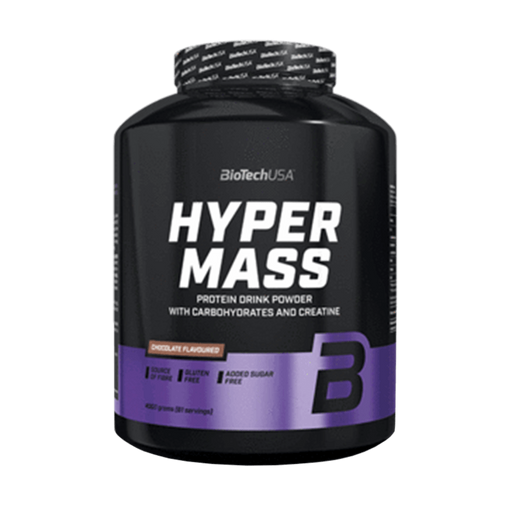 Jetzt 0% sparen
Jetzt % sparen
Original-Preis €44,90 - Original-Preis €44,90Original-Preis €44,90€44,90€44,90 - €44,90Aktueller Preis €44,90|/
Jetzt 0% sparen
Jetzt % sparen
Original-Preis €44,90 - Original-Preis €44,90Original-Preis €44,90€44,90€44,90 - €44,90Aktueller Preis €44,90|/Hyper Mass · 4000g
Biotech USA5 reviewsProtein- und Kohlenhydrat-Fusion angereichert mit Creatin-Monohydrat Steigert die tägliche Proteinaufnahme für Muskelmasse Enthält 3.250 mg Creati...
Vollständige Details anzeigenOriginal-Preis €44,90 - Original-Preis €44,90Original-Preis €44,90€44,90€44,90 - €44,90Aktueller Preis €44,90|/Jetzt 0% sparen Jetzt % sparen -
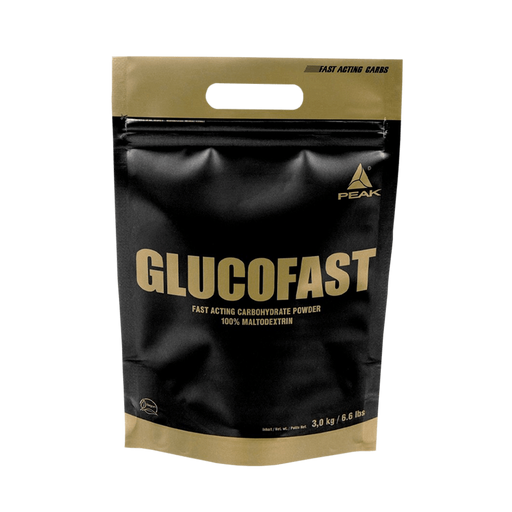 Jetzt 0% sparen
Jetzt % sparen
Original-Preis €24,90 - Original-Preis €24,90Original-Preis €24,90€24,90€24,90 - €24,90Aktueller Preis €24,90|/
Jetzt 0% sparen
Jetzt % sparen
Original-Preis €24,90 - Original-Preis €24,90Original-Preis €24,90€24,90€24,90 - €24,90Aktueller Preis €24,90|/Glucofast · 3000g
PEAK2 reviewsDer schnelle Energiespender für ambitionierte Sportler Hoher glykämischer Index (115) und niedrige Osmolarität (100 mOsm/kg sol.) Synergetisch kom...
Vollständige Details anzeigenOriginal-Preis €24,90 - Original-Preis €24,90Original-Preis €24,90€24,90€24,90 - €24,90Aktueller Preis €24,90|/Jetzt 0% sparen Jetzt % sparen -
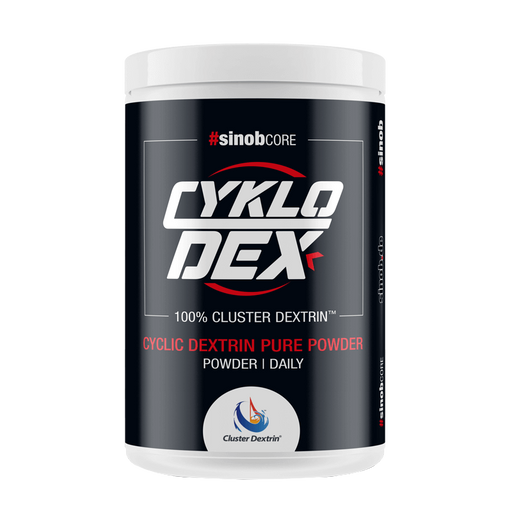 Ausverkauft
Original-Preis €29,90 - Original-Preis €29,90Original-Preis €29,90€29,90€29,90 - €29,90Aktueller Preis €29,90|/
Ausverkauft
Original-Preis €29,90 - Original-Preis €29,90Original-Preis €29,90€29,90€29,90 - €29,90Aktueller Preis €29,90|/Core Cyklo Dex Cluster Dextrin® · 1000g
#sinobNo reviewsDie Vorteile des Core CykloDex CLUSTER DEXTRIN® auf einen Blick: 100 % hochverzweigtes, zyklisches Maltodextrin mit Qualitäts-Markenrohstoff CLUST...
Vollständige Details anzeigenOriginal-Preis €29,90 - Original-Preis €29,90Original-Preis €29,90€29,90€29,90 - €29,90Aktueller Preis €29,90|/Ausverkauft -
 Jetzt 0% sparen
Jetzt % sparen
Original-Preis €59,90 - Original-Preis €59,90Original-Preis €59,90€59,90€59,90 - €59,90Aktueller Preis €59,90|/
Jetzt 0% sparen
Jetzt % sparen
Original-Preis €59,90 - Original-Preis €59,90Original-Preis €59,90€59,90€59,90 - €59,90Aktueller Preis €59,90|/Epic Weight Gainer · 4500g
PEAK7 reviewsHochwertige Weight Gainer Formula der neusten Generation Extrem hochwertige Proteinmatrix aus Whey, Casein & Ei-Protein Perfekte 3-stufige Koh...
Vollständige Details anzeigenOriginal-Preis €59,90 - Original-Preis €59,90Original-Preis €59,90€59,90€59,90 - €59,90Aktueller Preis €59,90|/Jetzt 0% sparen Jetzt % sparen -
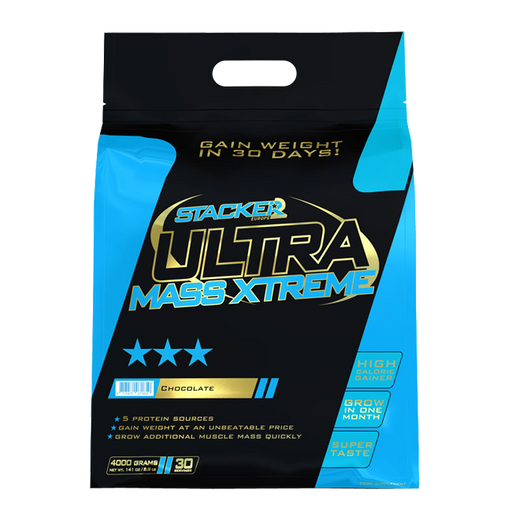 Jetzt 0% sparen
Jetzt % sparen
Original-Preis €34,90 - Original-Preis €34,90Original-Preis €34,90€54,90€54,90 - €54,90Aktueller Preis €54,90|/
Jetzt 0% sparen
Jetzt % sparen
Original-Preis €34,90 - Original-Preis €34,90Original-Preis €34,90€54,90€54,90 - €54,90Aktueller Preis €54,90|/Ultra Mass Xtreme · 4000g
Stacker 22 reviewsMonatsprodukt zum Aufbau von Muskelmasse Kalorienreich und fettarm Der richtige Weg für den schnellen Aufbau von zusätzlicher Muskelmasse Enthält ...
Vollständige Details anzeigenOriginal-Preis €34,90 - Original-Preis €34,90Original-Preis €34,90€54,90€54,90 - €54,90Aktueller Preis €54,90|/Jetzt 0% sparen Jetzt % sparen -
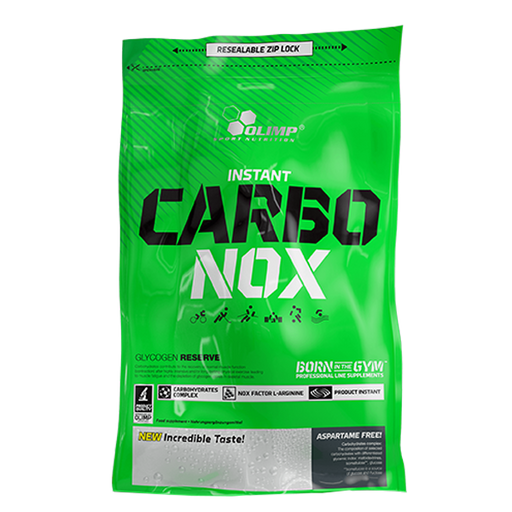 Jetzt 0% sparen
Jetzt % sparen
Original-Preis €15,90 - Original-Preis €15,90Original-Preis €15,90€15,90€15,90 - €15,90Aktueller Preis €15,90|/
Jetzt 0% sparen
Jetzt % sparen
Original-Preis €15,90 - Original-Preis €15,90Original-Preis €15,90€15,90€15,90 - €15,90Aktueller Preis €15,90|/Carbonox · 1000g
Olimp Sport Nutrition5 reviewsCarbonox ist ein Kohlenhydrate-Präparat, das als das beste der letzten zwanzig Jahre bezeichnet wird. Die einzigartige Zusammensetzung von Carbono...
Vollständige Details anzeigenOriginal-Preis €15,90 - Original-Preis €15,90Original-Preis €15,90€15,90€15,90 - €15,90Aktueller Preis €15,90|/Jetzt 0% sparen Jetzt % sparen -
 Jetzt 0% sparen
Jetzt % sparen
Original-Preis €44,90 - Original-Preis €44,90Original-Preis €44,90€46,90€46,90 - €46,90Aktueller Preis €46,90|/
Jetzt 0% sparen
Jetzt % sparen
Original-Preis €44,90 - Original-Preis €44,90Original-Preis €44,90€46,90€46,90 - €46,90Aktueller Preis €46,90|/Masstiff 2.0 · 2000g
Big Zone11 reviewsLeicht verdauliche und hochwertige Basis aus Whey Protein hydrolysiertes Reismehl und Süßkartoffelpulver als hochwertige Kohlenhydrate ergänzt dur...
Vollständige Details anzeigenOriginal-Preis €44,90 - Original-Preis €44,90Original-Preis €44,90€46,90€46,90 - €46,90Aktueller Preis €46,90|/Jetzt 0% sparen Jetzt % sparen -
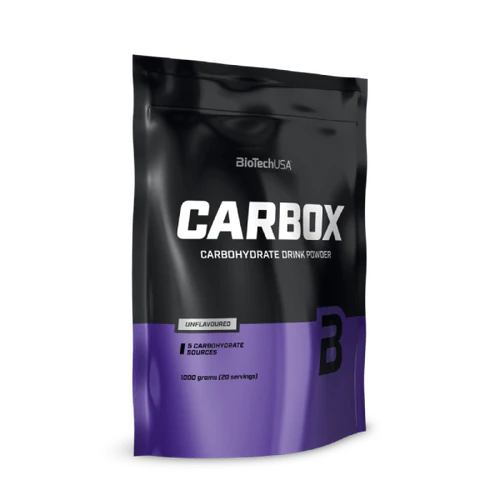 Jetzt 0% sparen
Jetzt % sparen
Original-Preis €9,90 - Original-Preis €9,90Original-Preis €9,90€9,90€9,90 - €9,90Aktueller Preis €9,90|/
Jetzt 0% sparen
Jetzt % sparen
Original-Preis €9,90 - Original-Preis €9,90Original-Preis €9,90€9,90€9,90 - €9,90Aktueller Preis €9,90|/CarboX · 1000g
Biotech USA1 reviewBiotech CarboX™ ist eine komplexe Kohlenhydratformel mit zeitversetzter Freisetzung Enthält verschiedene Formen von langsam, normal und schnell ab...
Vollständige Details anzeigenOriginal-Preis €9,90 - Original-Preis €9,90Original-Preis €9,90€9,90€9,90 - €9,90Aktueller Preis €9,90|/Jetzt 0% sparen Jetzt % sparen -
 Ausverkauft
Original-Preis €16,90 - Original-Preis €16,90Original-Preis €16,90€16,90€16,90 - €16,90Aktueller Preis €16,90|/
Ausverkauft
Original-Preis €16,90 - Original-Preis €16,90Original-Preis €16,90€16,90€16,90 - €16,90Aktueller Preis €16,90|/Core Instant Oats · 4000g
#sinob3 reviewsHochwertige Kohlenhydratquelle: Hafer liefert langsam verdauliche Carbs und viel Protein, ideal für anhaltende Energie und Muskelaufbau. Gesund...
Vollständige Details anzeigenOriginal-Preis €16,90 - Original-Preis €16,90Original-Preis €16,90€16,90€16,90 - €16,90Aktueller Preis €16,90|/Ausverkauft -
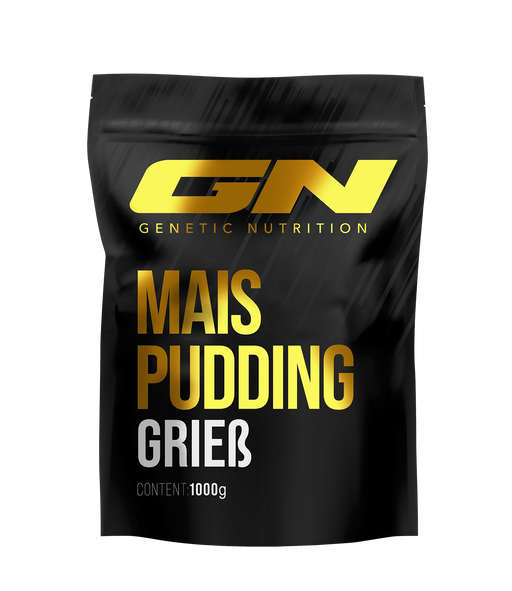 Jetzt 0% sparen
Jetzt % sparen
Original-Preis €12,90 - Original-Preis €12,90Original-Preis €12,90€12,90€12,90 - €12,90Aktueller Preis €12,90|/
Jetzt 0% sparen
Jetzt % sparen
Original-Preis €12,90 - Original-Preis €12,90Original-Preis €12,90€12,90€12,90 - €12,90Aktueller Preis €12,90|/Mais Grieß Pudding · 1000g
GN Laboratories1 reviewSteigern Sie Ihre Energie mühelos mit unserem GN Mais Grieß Pudding. Dieser geschmacksneutrale Instant-Maispudding versorgt Sie schnell und unkompl...
Vollständige Details anzeigenOriginal-Preis €12,90 - Original-Preis €12,90Original-Preis €12,90€12,90€12,90 - €12,90Aktueller Preis €12,90|/Jetzt 0% sparen Jetzt % sparen -
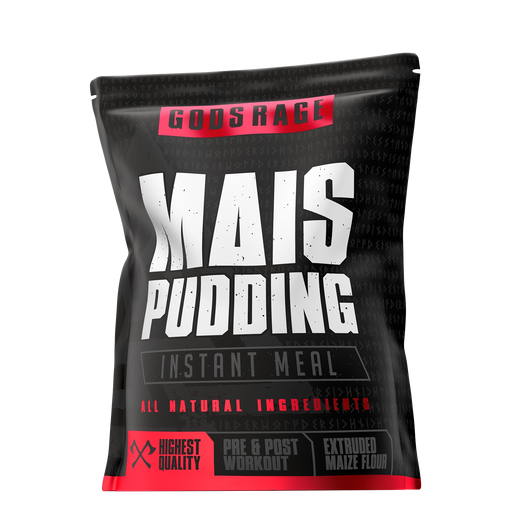 Jetzt 0% sparen
Jetzt % sparen
Original-Preis €12,90 - Original-Preis €12,90Original-Preis €12,90€12,90€12,90 - €12,90Aktueller Preis €12,90|/
Jetzt 0% sparen
Jetzt % sparen
Original-Preis €12,90 - Original-Preis €12,90Original-Preis €12,90€12,90€12,90 - €12,90Aktueller Preis €12,90|/Mais Pudding Instant Meal · 1000g
Gods RageNo reviewsErhöhen Sie spielend leicht Ihr Energielevel mit unserem Gods Rage Mais Pudding. Dieser geschmacklich neutrale Instant-Mais-Pudding liefert Ihnen e...
Vollständige Details anzeigenOriginal-Preis €12,90 - Original-Preis €12,90Original-Preis €12,90€12,90€12,90 - €12,90Aktueller Preis €12,90|/Jetzt 0% sparen Jetzt % sparen
Nach dem sogenanten Isodynamiegesetz können sich die drei Energieliefernden Nährstoffe Kohlenhydrate, Fette und Eiweiße bei der Energiegewinnung theoretisch gegenseitig vertreten.
Als isodyname Mengen gelten:
- 1 g Fett = 2,27 g Kohlenhydrate = 2,27 g Eiweiß
- 1 g Kohlenhydrate = 1 g Eiweiß = 0,44 g Fette
Der von der DGE empfohlene Anteil der Nährstoffe der täglichen Nahrungsenergie sollte wie folgt liegen:
- Kohlenhydrate: 55-60 % Energie (kcal%)
- Fette: 25-30 % Energie (kcal%)
- Eiweiße: 10-15 % Energie (kcal%)
Tatsächlich aber stimmen diese Relation bei unserer heutigen Zivilisationskost keineswegs mit dem überein. So wirkt sich das bestehende schlechte Kohlenhydrat-Fett-Verhältnis, bei dem 40 % der Nahrungsenergie durch Fette, aber nur 40 % der durch Kohlenhydrate zugeführt werden, ungünstig auf Gesundheit, Wohlbefinden und Körpergewicht aus. In den letzten Jahren ist der Verzehr an wertvollen, komplexen Kohlenhydraten (in Getreide, Kartoffeln, Gemüse) zurückgegangen, während die Aufnahme von einfachen Zuckern ("leere Kalorien") und Fetten beträchtlich zugenommen hat. In diesem Zusammenhang liegt auch das Problem des hohen Übergewichts (Adipositas), welches ein Risikofaktor für die Entstehung verschiedener Krankheiten wie Herz-Kreislauf-Erkrankungen, Krankheiten des Bewegungsapparates und der Psyche, Diabetes etc. darstellt.
Kohlenhydrate
Kohlenhydrate gelten als die wichtigste Energiequelle für alle körperlichen und geistigen Leistungen. Man unterscheidet bei Nahrungskohlenhydraten zwischen Monosacchariden (Einfachzuckern), Disacchariden (Zweifachzucker), Oligosacchariden (aus 3-10 Monosacchariden aufgebaut) und Polysacchariden (Vielfachzucker).
Beispiele:
Einfachzucker (Monosaccharide)
- Dextrose, auch Traubenzucker oder Glucose
- Mannose, ein Epimer der Glucose
- Fructose, auch Fruchtzucker
- Galactose, auch Schleimzucker
- Ribose, Teil der Ribonukleinsäure (RNA)
- Desoxyribose, Teil der Desoxyribonukleinsäure (DNA)
Zweifachzucker (Disaccharide)
- Saccharose, auch Rübenzucker oder Rohrzucker (Glucose + Fructose)
- Lactose, auch Milchzucker (Glucose + Galactose)
- Lactulose, ein synthetisch abgewandelter Milchzucker
- Maltose, auch Malzzucker (Glucose + Glucose)
- Trehalose
Mehrfachzucker (Polysaccharide)
- Stärke
- Cellulose
- Glykogen
Der Grundbaustein Glucose ist die einzige Form der Kohlenhydrate, die für die Energiegewinnung herangezogen werden kann. Daher müssen die komplexen Kohlenhydrate erst in den Grundbaustein Glucose zerlegt bzw. umgewandelt werden. Dies geschieht durch Enzyme (Amylasen) in Mund und Magen wie das Ptyalin. Kohlehydrate (Glucosebausteine) können bis zu viermal (anaerob) bzw. zweimal (aerob) schneller Energie für Muskelkontraktionen bereitstellen als Fette, die zum Verbrennen immer Sauerstoff benötigen. Zum anderen ist Glucose, ein Monosaccharid, die einzige Energiequelle für das Gehirn und Nervensystem. Daher muss Glucose bei Fehlen durch die Glukoneogenese (Glucoseneubildung) aus Aminosäuren synthetisiert werden.
Sind keine Aminosäuren aus der Nahrung vorhanden (es gibt keinen unmittelbaren Eiweißspeicher), wird Muskeleiweiß abgebaut (antikataboler Effekt). Aminosäuren werden aus den Muskelproteinen herausgelöst und ins Blut für die Glucoseneubildung abgegeben. Mittlerweile ist dies auch bei Kraftsportlern bekannt. Um diesen antikatabolen Effekt gering zu halten und die Eiweißreserven zu schonen, müssen sie sich Sportler kohlenhydratreich ernähren.
Kohlenhydrate in Nahrungsmitteln
Einfachzucker wie Glukose, Fruktose und Galaktose sind v.a. in Obst und in Honig enthalten. Wichtige in der Nahrung enthaltene Zweifachzucker sind der Milchzucker (Laktose), der z.B. im Bier befindliche Malzzucker (Maltose) und der Rohr- oder Rübenzucker (Saccharose), welcher im handelsüblichen Haushaltszucker enthalten ist. Komplexe Vielfachzucker finden sich in Form von Stärke vor allem in Kartoffeln, Reis und Getreide.
Glykämischer Index (GI)
Der glykämische Index (GI) gibt die blutzuckersteigernde Wirkung bestimmter Kohlenhydrate bzw. kohlenhydrathaltiger Lebensmittel in Zahlen an. Der Bezugswert ist dabei die Glukose (Traubenzucker), die einen glykämischen Index von 100 hat. Entscheidend für den Blutzuckeranstieg ist nicht nur der Kohlenhydratgehalt eines Nahrungsmittels, sondern auch die Zusammensetzung. So wird reiner Traubenzucker schnell und direkt ins Blut aufgenommen, der Blutzuckerspiegel steigt rasch an. Nahrungsmittel, die komplexeren Kohlenhydrate (in erster Linie Stärke) gepaart mit Ballaststoffen enthalten, werden viel langsamer verdaut, die Kohlenhydrate kontinuierlich ins Blut aufgenommen.
Es entstehen keine Blutzuckerspitzen. Die WHO hat den glykämischen Index für die Auswahl von Kohlenhydraten im Rahmen einer gesunden Ernährung empfohlen. Lebensmittel mit niedrigem GI sind dabei zu bevorzugen. Diese erhöhen den Blutzucker nicht schlagartig und die Bauchspeicheldrüse (Pankreas) muss nicht ständig übermäßig Insulin produzieren, das körpereigene Hormon, welches der Senkung des Blutzuckerspiegels dient. Das Organ ist für eine ständige hohe Zuckerbelastung nicht gerüstet, sodass ein Nachlassen seiner Funktionsfähigkeit und schließlich ein manifester Diabetes mellitus die Folge sein kann.
Welche Kohlenhydrate sind für Sportler empfehlenswert?
Einfache Kohlenhydrate (Mono- und Disaccacharide) wie Glucose, Haushaltszucker (Saccharose) und Fructose (Fruchtzucker) sind "leere Kalorienkalorienträger", d.h. sie liefern außer Kalorien keine Vitamine und Mineralstoffe. zu empfehlen. Bezüglich des Blutzuckerspiegels haben Die komplexen Kohlenhydratträger, z.B. Bananen, Getreideprodukte, Kartoffeln, Obst, Gemüse und Hülsenfrüchte, den Vorteil, dass sie nicht so schnell zu Glucose abgebaut werden und somit nicht so schnell zu einem hohen Anstieg des Blutzuckerspiegels führen. Die einfachen Kohlenhydrate (Zucker, Fruchtzucker, Traubenzucker) bewirken durch die schnelle Aufnahme ins Blut einen schnellen und hoch ansteigenden Blutzucker, welcher eine große Ausschüttung von Insulin zur Folge hat. Insulin bewirkt einen Glucose-Einstrom in die Muskelzellen zur Energieverwertung bzw. einen Aufbau von Energiereserven in Form von Glykogen oder, wenn diese gefüllt sind, von Fett. Dadurch sinkt der Blutzuckerspiegel so schnell ab, dass es unter Umständen zu einer Unterzuckerung kommt. Das wirkt sich in einem Hungergefühl wieder aus.
In sportmedizinischen Untersuchungen wurde bewiesen, dass die Zunahme von Kohlenhydraten während Belastungen über 45 Minuten sinnvoll ist. Es wurde gezeigt, dass die Kohlenhydrate auch während der anstrengendsten Belastung verdaut und durch das Blut an die Muskelzellen weitergegeben werden können. Dadurch kann man die Glykogenreserven schonen und Belastungen länger aufrechterhalten. Die Banane ist ein hervorragender Kohlenhydratspender, da sie eine günstige Mischung von komplexen und einfachen (schnellen) Kohlenhydraten besitzt. Ihr geringer Glucoseanteil geht sofort, die reichlich vorhandene Stärke langsam ins Blut über, während die ebenfalls enthaltene Fructose zwar schnell ins Blut übergeht, jedoch erst im Laufe der folgenden Stunde langsam in Glucose (Traubenzucker) umgewandelt wird. Dadurch bekommt man einen sofortigen, leichten, aber konstant auf günstigem Niveau erhöhten Blutzuckerspiegel für eine langandauernde Wirkung bei hoher Leistung. Daher ist die Banane nicht nur im Tennis eine beliebte Pausennahrung.
Fehlversorgung
Eine zu geringe Kohlenhydratzufuhr kann in gewisser Weise durch Nahrungsfette ausgeglichen werden. Fehlen sowohl Kohlenhydrate als auch Fette als Energielieferanten, so wird Eiweiß anstelle der normalen Energieträger abgebaut. Länger andauernde Mangelzustände können so z.B. zum Abbau von Muskulatur führen. Eine ausreichende Kohlenhydratzufuhr hat hingegen eine eiweißsparende Wirkung. Übermäßige Kohlenhydratzufuhr hingegen wird auf Dauer, wenn die normale Speicherform ausgeschöpft ist, also die Glykogenvorräte aufgefüllt sind, in Körperfett umgewandelt und im Fettgewebe gespeichert. Gewichtszunahme ist die Folge.
Bedeutung der Glykogenspeicher
Der menschliche Körper besitzt nur beschränkte Vorräte an Kohlenhydraten und muss daher ständig seine Speicher durch die Nahrung auffüllen, sonst kann eine vorzeitige Ermüdung und eine unzureichende Regeneration nach dem Training die Folge sein. Die Glykogenspeicher liegen normalerweise zwischen 300-400g, wobei 1/3 als Leberglykogen (60-100g) zur Regelung des Blutzuckerspiegels und 2/3 als Muskelglykogen vorliegen. Bei normaler Mischkost kann in der Muskulatur durchschnittlich 1,5 g Glykogen pro 100g Muskelmasse gespeichert werden, während dieser Wert bei kohlenhydratreicher Kost auf 2,0 g/100g Muskelmasse ansteigen kann. Durch Training kann die Fähigkeit, Glykogen in der Muskulatur zu speichern, deutlich gesteigert werden.
Vergrößerung der Muskelglykogenspeicher durch "Carbo-Loading" Sportler können den Muskelglykogenspeicher auf bis zu 2,5 g pro 100 g Muskelmasse erhöhen.
Superkompensation der Muskelglykogenspeicher:
Kommt es nach einer intensiven körperlichen Belastung zu einer fast vollständigen Entleerung der Glykogenspeicher, können diese bei entsprechend kohlenhydratreicher Ernährung (60-80 % der Gesamtenergiezufuhr) in der Regenerationsphase über das Ausgangsniveau hinaus erhöht werden. Die erste Phase, in der die Kohlenhydrate am schnellsten in der Muskulatur gespeichert werden, erstreckt sich über die ersten 10 Stunden. Diese Erkenntnis zeigt, wie wichtig es ist, innerhalb der ersten Stunden nach Belastungsende genügend Kohlenhydrate zu sich zu nehmen. Voraussetzung ist aber immer, dass die durch eine entsprechend intensive Ausdauerbelastung vorher entleert werden.

